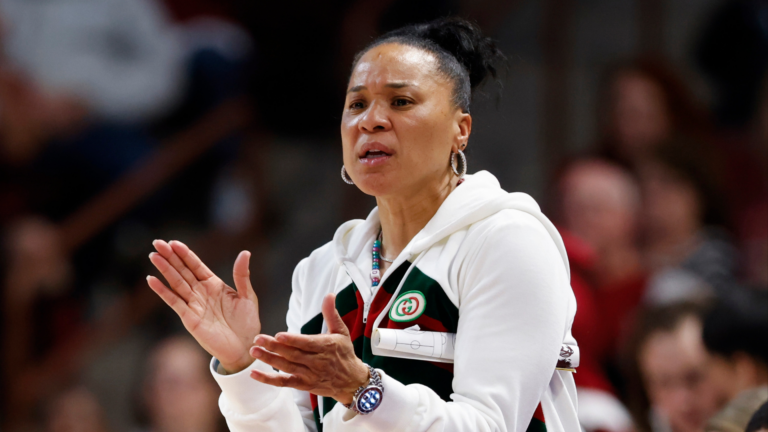This week’s conversation is with NASCAR champion, Kurt Busch.
In 2019, Kurt made the move to Chip Ganassi Racing to become the driver of the No. 1 Monster Energy Chevrolet Camaro ZL1 in the Monster Energy NASCAR Cup Series
Kurt has more than 650 career starts in the MENCS spanning over 21 years of competition.
He’s made 12 appearances in the NASCAR Playoffs including six consecutive appearances.
In addition to being the 2004 MENCS Champion, he also has marquee wins in the NASCAR All-Star race, Coca-Cola 600 (2010) and the Daytona 500 (2017).
Kurt is a fierce competitor and his resume speaks for itself… he understands what it takes to win.
In this conversation, Kurt shares how that same mentality that propelled him to countless victories also almost derailed his career.
We discuss the importance of relationships and how evolving his approach – from transactional to transformational – has reinvigorated him in the second half of his career.
Kurt also describes what it’s like inside a race car traveling at 200mph.
The level of focus required is intense – and recovering from a 3-hour race is no joke.
“The mistake I made early in my career is that I was the one carrying my own torch and just going strong and not realizing that it’s a team that makes it happen. It’s not just one individual. And so that’s what I did wrong early in my career and now it’s great to realize that in this second half.”
In This Episode:
What was childhood like?
I’m out playing with my friends and out there with baseball, basketball, tag, whatever it may have been, when dad rolled in, Kurt was out. They’re like, “Why can’t you stick around and be more of a friend with us?” I’m like, “Well, my dad says I got to do this stuff for the family business.” And so I learned early on that business was going to take over most of my extra time.
How did that shape him?
The discipline and the regiment, I think that that helped a ton with building that foundation and then the respect of people that I was meeting. And then when that started to evolve into more of the racetrack life, that’s when I saw, with my dad’s approach, when he went to the racetrack, it wasn’t social our, it wasn’t there to make friends, it was to win. And so that upbringing of discipline and then to perform it to win, it was around me whether I knew it or not. And that’s how I think I was able to crack through, to be able to get recognized, and to be a little fish in a big pond in the western states of racing, that’s what helped me jump ahead and to get recognized to be able to parlay that into a full time NASCAR career.
It wasn’t about relationships, it was about taking care of business and winning
When I look back on things, with racing in this lower division and then getting up into a middle and then the higher divisions, I didn’t have those friendships, and I moved on so quickly with advancing through those racing situations. I mean, my first ever race was 1994. I was 16 years old. I made it to the top form of NASCAR, what was called the Winston Cup Series six years later. I’m starting with the top guys, Dale Earnhardt Sr., Jeff Gordon. Bobby Labonte was the current champion that year, and I’m starting a race in September 2000 with those guys. That’s how fast things went. And so when things were moving that fast, of course, I’m not developing as what I should have as a male, as a human, to know what to do with interviews, know what to do professionally. Again, my dad’s a blue collar tool salesman, an auto mechanic, and when I made it to the big time, the advice and the ability to help nurture me was kind of flatlined. And now here I am as a 22 year old drinking through a funnel, moved to the Carolinas to go full-time racing, and now I’m learning all these different facets of the business.
How did being labeled the third most hated athlete of 2006 impact him?
It helped me learn to… I’ll use a cliche here… to pump the brakes and to know that I could harness this anger in a way that was still a positive approach, and to use it to get those race wins, and to build that consistency, and to be the leader of the team. But also, I’ve got to do a better job in the political aspect of my job, and to be a better public relations manager of my own self, and to learn and to draw in more people. I needed more people to support my efforts. And so those mistakes and those situations, it teaches you to surround yourself with better people and to become a better, more well-rounded individual to tackle all aspects of being a professional athlete.
Do other people’s opinions matter to him?
I think early on as a young athlete, you’re more influenced and impacted by people’s opinions, and you’re caught like, “Whoa, that is completely off of what is reality.” And I tried to go and target those writers or those situations, and that’s something you can’t do. It’s a no, no. And so as time has progressed, I’ve become more comfortable in my own skin. You let your talking happen out on the racetrack, and you move forward. That’s how, again, you learn from your mistakes, and I think that that’s what’s helped me in the second part of my career. The second half of my career, I have felt more success and more value with racing, teaching new engineers, new mechanics the ins and outs of the sport, having young drivers now approach me and ask for advice. There’s less race wins happening now, but there seems to be more value, and there’s more that I can take away.
What’s the most challenging part of being a NASCAR driver?
The business side, and the politics, and the ability to navigate within… These contracts in NASCAR are eight figure contracts, and you see the prize money and the winnings over the years of when you win this race, and that, and how things have added up into triple millions, it’s a big business, and it’s a political business. And when you have these friendships with the teams, it’s hard because there’s not quite a union and there’s not quite that structure set up for NASCAR drivers. We’re still all independent contractors. And so you want that good-hearted blue collar value of, if I provide a service and I’m one of the top tier guys, you would expect that in return in pay or in different benefits, and yet it seems like it’s a political game of, “What have you done for me lately?” And you can be moved on real quick. And so that’s been probably the toughest part. For me, I haven’t found that synergy with the race teams that I’ve raced with just being more or less patted on the back for the services that I’ve provided, the wins and my value. I think that that’s been the toughest part.
What’s his ideal mindset while racing?
There’s a famous quote from Mario Andretti, that if everything seems calm, then you’re not going fast enough. And I love that quote, but also at the same time, when you are in any business, CEO or an employee, if you’re an athlete, when things slow down and when things are in the zone, like we’ve seen with Michael Jordan, on how when he’s shooting the basketball, it seems like the hoop is the size of a hula hoop, or a manhole cover is what Tiger Woods is putting at when he’s in that zone, that’s when you go into that next level. That’s when things have slowed down, and it’s because your awareness is prepared by your preparation, and your preparation is meeting that opportunity because of all of the steps that you’ve put in place. And it’s the same as walking into a boardroom as a CEO and knowing the look on somebody’s eye, or to watch their body language, or to know that when they’re stumbling through a presentation it’s because they haven’t done the right things to be in position to win.
How often does he enter flow state?
I would say, a good five to six times in a racing season, but yet, each and every race, you’re zoned in for that and you’re doing all you can to find it, and if you’re trying to search for too hard, then you don’t find it. It’s when it comes to you and you realize it, and then you find that peace within it, and literally, in the race car, the car goes silent. You don’t even hear the engine running, you don’t hear the other cars around you. There’s the chatter that’s coming across the radio from the crew chief and the spotter, and that information is going in this year and right out that year, but my communication in my brain is digesting all of it and applying it and slowing it all down. And so those moments usually turn into race wins, they turn into top five finishes or most laps lead, and those moments even happen quick and then they’re gone with the pit crew. I come sliding into the pit box, hit my marks, and that pit crew, you can literally hear the pit guns in harmonic symmetry on both sides, and boom, you’re done, you pit stop’s over and it was 11 seconds. Four tires, 18 gallons of gas, and it all happens in 11 seconds and then you’re out of there to keep your position on track. That’s when you’re in that harmonic balance with the team, and you feel that as a team effort and what it takes to win that way.
What’s he pursuing?
For me, I love the competition. I love to beat the best of the best. And to have done it over a 20 year period, that’s something that is that original work ethic that my dad instilled in me. I mean, he had the same job for 30 years. That blue collar style, wake up at 6:00 AM, you don’t go to bed till late because you’re still working,” that’s important to me, that’s my drive, and that’s what I want to leave behind as my legacy. And my legacy is one that I think as a NASCAR champion that grew up in the 90s, watching it on TV, won a championship in the 2000s, and then now is still active in 2020, I feel like I’m a good bridge between the past set of racers and what the future racers will look like and how they will act and what they will do on track.
If he could sit down with a master of craft, who would it be?
A guy like Roger Federer, I’ve never had the chance to meet him, but when you’re in an individual sport like tennis or golf, and you have this ability to be at the level that he is, he would be somebody that I’d love to sit down, have dinner with, to have beer, and just shoot the shit and learn from one of the top athletes that’s been around while I’ve been an athlete as well. Roger Federer is a very calculated and talented individual around the tennis court, but yet I think he intimidates people just by showing up, and how could I have done that better? How could I have applied that to be that next level for myself? That’s what I’d love to learn from him and how he approaches that.


